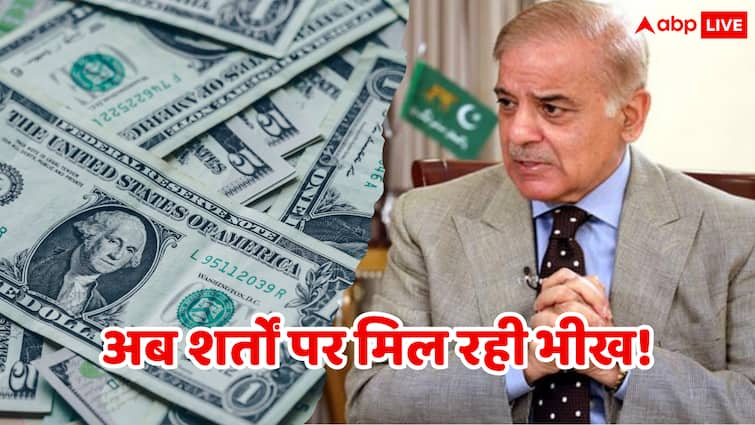Pakistan has got another relief package from the International Monetary Fund (IMF), but instead it has to accept 11 new and strict conditions. According to a report by Express Tribune, IMF has allowed Pakistan to release $ 1 billion immediately, so that Pakistan has received a total amount of $ 2.1 billion so far. Along with this, IMF has also approved the $ 1.4 billion resilience and sustainability facility (RSF) for Pakistan.
Indo-Pak stress became a matter of concern for IMF
The IMF report clearly states that if the tension between India and Pakistan increases or persists for a long time, it may have a bad effect on the financial, external and improvement targets of this relief program. In such a situation, maintaining stability for Pakistan’s economy can be even more challenging.
What are the 11 new conditions of the IMF?
Now the matter of 11 strict conditions, without which Pakistan will not get the next installment. The impact of these conditions will be clear not only on the economy, but also on the life of the general public.
1. 17.6 trillion’s new budget
The IMF has directed Pakistan to pass a new budget by June 2025, which is in line with the fiscal targets of the IMF. In this budget, 1.07 trillion will be for development works, 8.7 trillion expenses, 2.1 trillion primary surplus and 6.6 trillion deficit has been fixed.
2. Agriculture income tax improvement
Now there is talk of taxing on income from farming. Under this, tax return processing, taxpayer identity, registration, communication and compliance will be made. It is mandatory to implement this entire process by June 2025.
3. Governance Action Plan
The IMF has asked the Government of Pakistan to prepare an action plan by preparing an action plan on the basis of governance diagnostic assessment, which will include ways to prevent corruption and increase transparency.
4. Cash transfer according to inflation
In order to maintain the purchasing power of the people of the country, the IMF has instructed Pakistan to adjust the cash transfer program every year according to inflation.
5. Financial strategy after 2027
Pakistan will have to make and publish a plan for the financial strategy after 2027, which will be described as a regulatory structure after 2028.
6. Annual amendment in electricity rates
Prior to 1 July 2025, Pakistan will have to notify the annual amendment of electricity rates so that the rates can be maintained according to the cost.
7. half -yearly amendment in gas tariff
The IMF has directed that by February 2026, Pakistan will have to notify half -yearly amendment in gas rates.
8. Captive Power Levi Law
Pakistan’s Parliament will have to pass a permanent law by the end of May 2025 to transfer the industrial energy to the national grid.
9. Debt service surcharge removal
Pakistan will have to enact a law so that the maximum limit of 3.21 per unit imposed on electricity consumers can be removed, so that the burden of power sector does not fall on honest consumers.
10. Eliminating technology zone incentives
The IMF has asked Pakistan to prepare a plan to completely eliminate all tax benefits given to special technology zones and industrial areas by 2035.
11. Bill on import of old trains
Pakistan will have to introduce a bill in Parliament with a list of all types of quantitative restrictions on imports of old old trains less than 5 years old by the end of July 2025.
Will the terms of IMF overshadow the Pakistani public?
These conditions of IMF will definitely give economic relief to Pakistan, but this can cause a big burden on the general public in the form of inflation, tax and energy rates. It will be interesting to see whether Pakistan will be able to fulfill these strict conditions or will they break its internal politics and patience.
Also read: Turn in United States and Russia! India has a chance, billions of dollars can come in the vault

